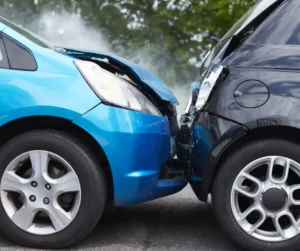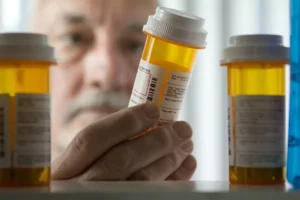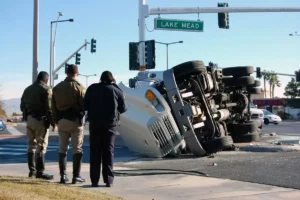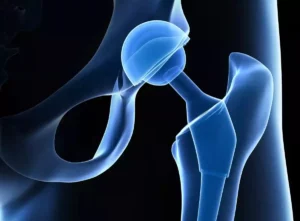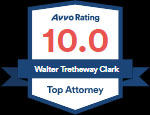When a vehicle is found to have a defect or safety hazard, the automaker has a duty to the consumer to address the problem—right? The action usually taken to fix a defective part or feature in a vehicle is a recall, in which the automaker informs vehicle owners of the problem and offers a free recall service through a dealership.
Unfortunately, this is not always the case. In some instances, automakers will attempt to avoid the cost of launching a full-blown recall. Instead they notify dealers about potential safety issues with vehicles via “service campaigns,” in the form of customer satisfaction campaigns or technical service bulletins (TSBs). These campaigns are voluntarily created by automakers to inform dealers and/or customers about defects and to offer repair solutions. However, these service campaigns are not supposed to be used for dangerous defects. In some cases, though, automakers are using these service campaigns as a shortcut for dealing with issues that actually do affect the safety of consumers.
Toyota Sued for Inadequate Fix to Prius Defect
Take Toyota as an example. In 2015, the driver of a 2012 Toyota Prius was driving down I-5 in southern California when his Prius began to lose power. His vehicle stalled completely in the far right lane of traffic, and he was rear-ended. Fortunately, the driver was not seriously injured in the crash. He did report the incident to the National Highway Traffic Safety Administration (NHTSA), expressing his concern about the defect that caused his vehicle to stall.
This is not the only incident of its kind. Hundreds of reports about Prius inverters overheating have been posted to the NHTSA website and other online forums. But Toyota doesn’t see it as a defect. In fact, they call the feature the vehicle’s “failsafe mode.” The company has stated that in failsafe mode, “the vehicle can be safely driven for some distance at a reduced speed” and that the feature is “designed to enhance vehicle safety.”
What causes the vehicles to lose power? It is actually an issue where the vehicle’s inverter overheats. In 2016, Toyota issued a recall on 2010-2014 model year Priuses to fix the overheating problem. The recall solution involved changes to the software.
Despite the alleged fix, reports of vehicles overheating and stalling continued. The problem was so prolific that one Toyota dealer, Roger Hogan, the owner of Claremont Toyota and Capistrano Toyota, filed a lawsuit against the automaker. The lawsuit alleges that the Prius hybrid system has an unresolved safety defect. It accuses Toyota of breach of contract and fraud.
Hogan’s attorney has argued that the fact that the repair made on the Priuses only lessens the likelihood of a failure is a violation of federal law. He claims the purpose of recall law is to fix the vehicle before it fails. Hogan also says that Toyota has been informing dealers about serious safety issues via service campaigns, rather than recalls.
Auto safety experts are seeing an upward trend in service campaigns, as opposed to safety recalls. Executive Director of the Center for Auto Safety Jason Levine says that these campaigns are an old practice that has increased in recent years, possibly in part due to the lack of oversight from the current administration.
Ford Refuses to Recall Explorers for Gas Leak
Ford Motor Company engaged in a similar action after drivers complained of gas leaks in their Ford Explorers. The company issued a customer service bulletin, as opposed to a recall, offering a free service to reduce the likelihood of exhaust entering the vehicle. However, the service bulletin states that the service is only for “customers’ peace of mind,” and that the vehicles are safe.
Despite Ford’s claims that the vehicles are safe, the automaker faces several lawsuits which claim the carbon monoxide exposure or resulting car accidents caused drivers to suffer severe injuries and neurological damage. There have been more than 1,300 complaints to the NHTSA about carbon monoxide poisoning from Ford Explorers, and the Center for Auto Safety has repeatedly requested that Ford issue a recall for the problem.
“Service campaigns are acceptable for minor issues that do not impact the safety of consumers. However, these automakers have gone too far by refusing to issue recalls over defects that can seriously harm consumers,” said Attorney Walter Clark, founder of Walter Clark Legal Group.
Our firm has been handling personal injury cases throughout the California Low Desert and High Desert communities for over 30 years. With a 95% success rate, the California personal injury attorneys at Walter Clark Legal Group will fight to hold those responsible for your loss accountable and win compensation to cover medical bills, lost wages, and pain and suffering. If you have been injured by a defective product and want to discuss your legal options, contact us today at (760) 777-7777 for a free consultation with an experienced personal injury lawyer. We have offices in Indio, Rancho Mirage, Victorville, El Centro, and Yucca Valley, and represent clients through the entire California Low Desert and High Desert communities.
DISCLAIMER: The Walter Clark Legal Group blog is intended for general information purposes only and is not intended as legal or medical advice. References to laws are based on general legal practices and vary by location. Information reported comes from secondary news sources. We do handle these types of cases, but whether or not the individuals and/or loved ones involved in these accidents choose to be represented by a law firm is a personal choice we respect. Should you find any of the information incorrect, we welcome you to contact us with corrections.
- What To Do If You Have Been Injured At A Concert In California? Mar 27,2024
- Walter Clark Legal Group Reimburses Thanksgiving Ride Fares Nov 14,2023
- Walter Clark Legal Group Donates Backpacks to Booker T. Washington Elementary School Aug 22,2023
- Walter Clark Legal Group Donates Backpacks to Underserved Students Aug 22,2023
- Walter Clark Legal Group Reimburses Labor Day Ride Fares Aug 21,2023
- 2023 Safe Ride Home Program Jun 21,2023









